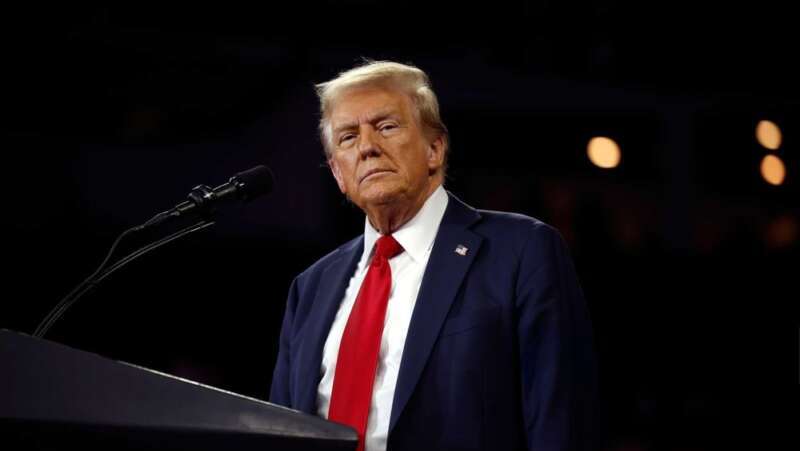
The Trump-Vance transition team signed a key memorandum of understanding (MOU) with the Biden-Harris White House on Tuesday to ease the transition between the two administrations.
However, President-elect Trump’s transition team acknowledged that it would not sign a second MOU with the General Services Administration (GSA) that would provide Federal office space and technology to the transition team.
Susie Wiles, chief of staff to President-elect Trump, said in a Nov. 26 statement that signing the MOU with the current White House “allows our intended cabinet nominees to begin critical preparations, including the deployment of landing teams to every department and agency, and complete the orderly transition of power.”
The congressionally mandated agreement allows transition aides to work with Federal agencies and access non-public information, and gives a green light to government workers to talk to the transition team.
“The Transition landing teams will quickly integrate directly into federal agencies and departments with access to documents and policy sharing,” the Trump-Vance transition team said.
The transition MOU was supposed to have been signed by Oct. 1, according to the Presidential Transition Act.
The agreement is a critical step in ensuring an orderly transfer of power at noon on Inauguration Day and lays the groundwork for the White House and government agencies to begin to share details on ongoing programs, operations, and threats.
“President-elect Trump and his team will be in seat on January 20 at 12 pm – and they will immediately be responsible for a range of domestic and global challenges, foreseen and unforeseen,” White House spokesperson Saloni Sharma said in a statement. “A smooth transition is critical to the safety and security of the American people who are counting on their leaders to be responsible and prepared.”
As part of the agreement with the White House, Trump’s team publicly disclosed its ethics plan for the transition operation on GSA’s website and made a commitment to uphold it.
Trump’s transition team said instead of leveraging government funding, it “will utilize private funding, again, providing cost savings to American taxpayers.”
The White House said it does not agree with Trump’s decision to forgo support from the GSA but is working on alternate ways to get Trump appointees the information they need without jeopardizing national security. Federal agencies have received guidance on how to share sensitive information with the Trump team without jeopardizing national security or non-public information.
For instance, agencies may require in-person meetings and document reviews since the Trump team has declined to shift to using secure phones and computers. For unclassified information, agencies may ask Trump transition staff to attest that they are taking basic safeguards, like using two-factor authentication on their accounts.
“The transition already has existing security and information protections built in, which means we will not require additional government and bureaucratic oversight,” the Trump transition team said in a statement, noting it would disclose its donors publicly.
A separate agreement with the Department of Justice to coordinate background checks for vetting and security clearances is still being actively worked on. The agency has teams of investigators standing by to process clearances for Trump aides and advisers once that document is signed.
That would clear the way for transition aides and future administration appointees and nominees to begin accessing classified information before Trump takes office.
“The signing of this agreement is good news, and a positive step toward an effective transfer of power,” said Max Stier, the president and CEO of the Partnership for Public Service. “This agreement unlocks direct access to information from federal agencies, which is vital for the incoming administration to be ready to govern on Day One and critical to the transition’s success.”
